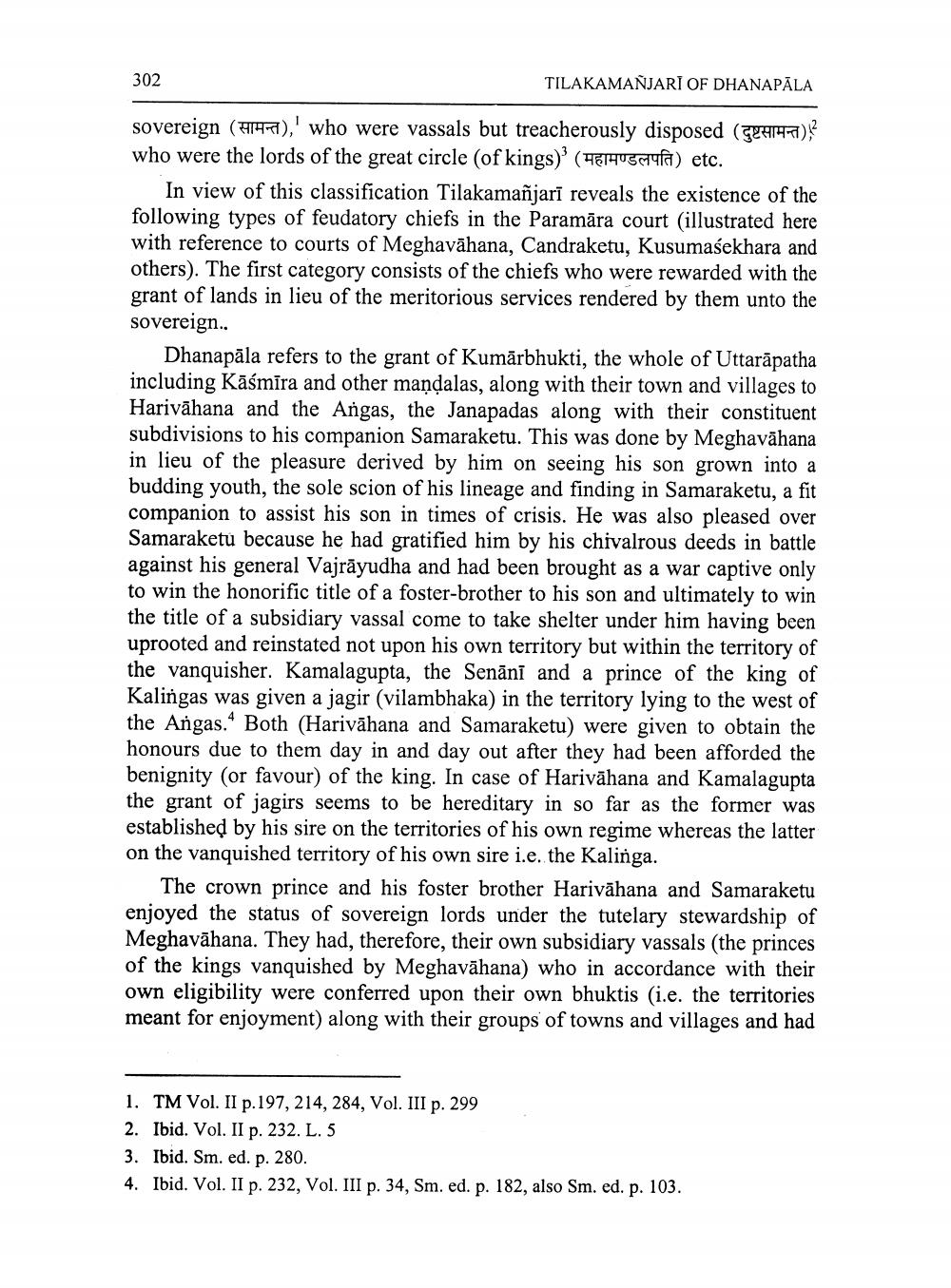________________
302
TILAKAMANJARI OF DHANAPĀLA
sovereign (सामन्त), who were vassals but treacherously disposed (दुष्टसामन्त) who were the lords of the great circle (of kings)' (HE14°Cctyla) etc.
In view of this classification Tilakamañjarī reveals the existence of the following types of feudatory chiefs in the Paramāra court (illustrated here with reference to courts of Meghavāhana, Candraketu, Kusumasekhara and others). The first category consists of the chiefs who were rewarded with the grant of lands in lieu of the meritorious services rendered by them unto the sovereign..
Dhanapāla refers to the grant of Kumārbhukti, the whole of Uttarāpatha including Kāśmīra and other mandalas, along with their town and villages to Harivāhana and the Angas, the Janapadas along with their constituent subdivisions to his companion Samaraketu. This was done by Meghavāhana in lieu of the pleasure derived by him on seeing his son grown into a budding youth, the sole scion of his lineage and finding in Samaraketu, a fit companion to assist his son in times of crisis. He was also pleased over Samaraketủ because he had gratified him by his chivalrous deeds in battle against his general Vajrāyudha and had been brought as a war captive only to win the honorific title of a foster-brother to his son and ultimately to win the title of a subsidiary vassal come to take shelter under him having been uprooted and reinstated not upon his own territory but within the territory of the vanquisher. Kamalagupta, the Senāni and a prince of the king of Kalingas was given a jagir (vilambhaka) in the territory lying to the west of the Angas. Both (Harivāhana and Samaraketu) were given to obtain the honours due to them day in and day out after they had been afforded the benignity (or favour) of the king. In case of Harivāhana and Kamalagupta the grant of jagirs seems to be hereditary in so far as the former was established by his sire on the territories of his own regime whereas the latter on the vanquished territory of his own sire i.e. the Kalinga.
The crown prince and his foster brother Harivāhana and Samaraketu enjoyed the status of sovereign lords under the tutelary stewardship of Meghavāhana. They had, therefore, their own subsidiary vassals (the princes of the kings vanquished by Meghavāhana) who in accordance with their own eligibility were conferred upon their own bhuktis (i.e. the territories meant for enjoyment) along with their groups of towns and villages and had
1. TM Vol. II p.197, 214, 284, Vol. III p. 299 2. Ibid. Vol. II p. 232. L. 5 3. Ibid. Sm. ed. p. 280. 4. Ibid. Vol. II p. 232, Vol. III p. 34, Sm. ed. p. 182, also Sm. ed. p. 103.




